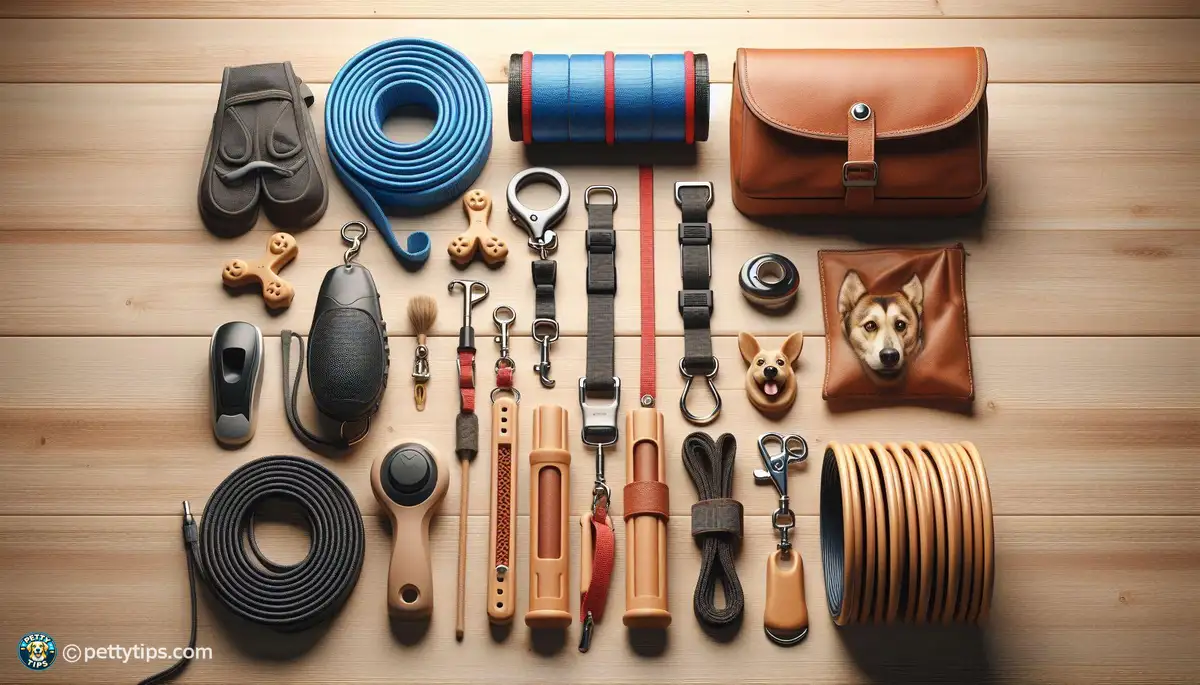
Integrating New Dogs into Multi-Pet Households: A Guide to Socialization
André Martins - Sep 24, 2024 - 8 min read


When it comes to training your furry friend, few commands are as crucial as recall. It's the linchpin of communication between you and your pet, ensuring safety, fostering trust, and enhancing the bond you share. Whether you're in a park, on a hike, or simply enjoying some playtime in the backyard, a reliable recall can prevent accidents and keep your dog out of harm's way. But mastering this command requires patience, consistency, and the right training aids.
Consistency is key in any training regimen, and recall is no exception. Dogs thrive on routine, and they learn best when commands are clear and consistent. That's why investing in the right training aids is essential. These tools not only reinforce your verbal cues but also provide additional support in teaching your dog to respond reliably to your call, even in distracting environments.
recall training isn't just about obedience; it's also about building trust and confidence between you and your pet. When your dog learns to respond promptly to your recall command, it strengthens the bond you share and gives them the freedom to explore their surroundings safely. By using the right training aids, you can instill the confidence your dog needs to navigate the world while staying connected to you.
Of course, recall training isn't always smooth sailing. Every dog is unique, and some may present challenges along the way. Whether it's a stubborn streak, a strong prey drive, or simply a lack of focus, overcoming these obstacles requires patience and persistence. The good news is that with the right tools and techniques, even the most challenging dogs can learn to master recall.
A long line is a versatile tool that provides your dog with the freedom to roam while still keeping them under your control. It allows you to gradually increase the distance between you and your pet during recall training, providing a safety net in case they fail to respond immediately. With consistent use, a long line can help reinforce your verbal cues and build your dog's confidence in responding to your call.
A training whistle is a valuable tool for teaching recall, especially in outdoor environments where verbal commands may be less effective. The high-pitched sound of the whistle cuts through distractions and grabs your dog's attention, making it easier for them to focus on your command. By pairing the whistle with positive reinforcement, you can teach your dog to associate the sound with coming back to you, even in challenging situations.
A treat pouch is a convenient way to keep rewards close at hand during recall training sessions. Whether you prefer using treats, toys, or praise as a reward, having easy access to reinforcements can help keep your dog motivated and engaged. Choose a pouch that's comfortable to wear and easy to clean, so you can focus on training without distractions.
A clicker is a simple yet effective tool for marking desired behaviors during recall training. The distinct clicking sound provides instant feedback to your dog, letting them know exactly when they've done something right. Pair the clicker with treats or praise to reinforce your dog's response to your recall command, and watch as they become more eager to respond to your call.
As your dog progresses in their recall training, it's important to gradually introduce distractions to test their responsiveness. Start with mild distractions, such as other dogs or people at a distance, and gradually increase the level of difficulty as your dog becomes more reliable. By exposing them to various stimuli in a controlled environment, you can prepare them to respond to your recall command in real-world situations.
Recall training doesn't have to be all work and no play. Incorporating recall games into your training sessions can make learning fun for both you and your dog. Try playing hide and seek, where you hide behind a tree or bush and call your dog to come find you. Or set up a recall relay race with family members or other pets for added excitement. By turning training into a game, you'll keep your dog engaged and eager to participate.
If you're struggling to make progress with your dog's recall training, don't hesitate to enlist the help of a professional trainer. An experienced trainer can assess your dog's individual needs and tailor a training plan to address any challenges they may be facing. Whether it's fine-tuning your technique, troubleshooting problem behaviors, or providing additional support, a trainer can help you and your dog achieve success.
Above all, recall training requires consistency and patience. Rome wasn't built in a day, and neither is a reliable recall. Be patient with your dog, celebrate their successes, and learn from their setbacks. With time, dedication, and the right training aids, you'll build a strong foundation of trust and communication that will last a lifetime.